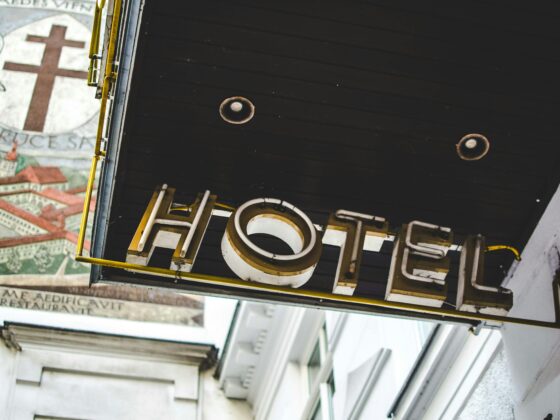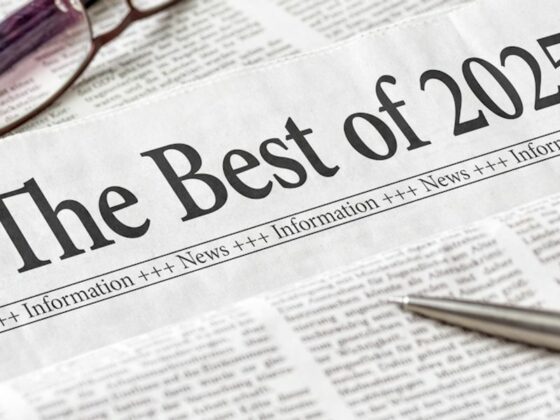The right hotel energy solution is a major concern for any hotel business. Rising energy costs can dramatically affect your bottom line. In addition, today’s eco-minded travelers are increasingly concerned with the impact of their stay on the environment. In this article, you’ll learn how your hotel business can reduce costs, attract more guests, and care for the planet at the same time.
Table of Contents:
Understanding the Hotel Industry: Hospitality, Accommodation and More
To understand why choosing the right hotel energy solution is important, it’s useful to consider the hotel industry as a whole. The hotel industry is part of the hospitality industry; there’s a lot of overlap between hotels, restaurants, spas, tour companies, and other hospitality businesses. Unlike other businesses in the hospitality landscape, the hotel industry is primarily concerned with providing short-term accommodation solutions for travelers.
A hotel, meaning any business that offers overnight stays, can be anything from a quaint boutique hotel in the city center to a sprawling beach resort. To learn more about the hotel industry, read “Hotel Industry: Everything You Need to Know About Hotels!”
Sustainable Stays, Powering Up Profits: The Importance of Energy Efficiency for Hotels
Today, energy conservation is a major concern for the hospitality industry. A hotel energy solution that cuts consumption provides economic benefits for your business. It also makes your hotel more environmentally friendly. The environmental benefits are wide-ranging. By conserving energy, you can help protect the environment by cutting down the resources needed to generate electricity, like fossil fuels. This reduces carbon emissions. The demand for new power plants depends on overall energy use, meaning that any reduction in demand cuts down the number of new power plants that must be constructed. This conserves resources used for building and also means that no new sites will need to be developed. That’s good news for natural areas that might otherwise be built over. Even if a plant uses renewable sources such as solar power, it can still occupy land and impact the local ecosystem.
Fueling the Hotel Industry: Introducing the Major Energy Resources that Power Hotels
The hotel industry uses a prodigious amount of energy. Aside from lighting and heating, electricity is used to power kitchen appliances, computer systems, gym equipment, heated swimming pools, electronic doors, and more. The chief resources used to generate electricity are fossil fuels: coal, oil, natural gas, etc. These fuels are non-renewable, meaning that they’re not replaced. A hotel may also use fossil fuels directly, as heat sources for warming the hotel or cooking food.
Another energy source sometimes used is wood, which fires biomass power plants and can be used in furnaces or boilers on the hotel’s premises. While wood is technically renewable, it’s generally placed in the non-renewable category, because it’s being used faster than new trees can be grown.
Increasingly, the world is looking to renewable energy sources such as solar, wind, and water power. Solar panels composed of photoelectric cells have become much more efficient in recent years. Hotels can install solar panels on their premises to generate electricity or seek energy suppliers that derive their electricity from solar farms. Wind power is another major source of green electricity. Typically, this is generated by large wind farms, collections of wind turbines located in more remote areas with plenty of open space, such as hillsides or coastal regions. Hotels in more isolated areas might choose to install a wind turbine to provide energy, although this is unusual.
Nuclear power is a contentious topic but attracts more interest as fossil fuels become less popular. In some regions, much electricity is generated from nuclear power plants. Nuclear power is regarded as less environmentally damaging than fossil fuels, as it produces vastly less carbon dioxide and minimal air pollution.
Video: Hotel Sustainability Basics – Efficiency
Practical Tips for Choosing a Hotel Energy Solution
In this section, you’ll learn about some of the energy solutions you could consider for your hotel and discover valuable tips for selecting the ones that are right for your business.
Install LED Lighting Throughout The Hotel
Lighting can make up a surprisingly large percentage of your overall energy costs. Replacing your current lighting systems with modern LED lighting can slash your consumption, as well as improve the guest experience. LED lighting is very flexible and comes in various tones, allowing you to create the perfect ambiance in every part of your hotel. As well as cutting bills, smart LED lighting in your guest rooms lets guests choose the level and color that they prefer. If you’re still using incandescent lighting or older energy-saving bulbs, it’s time to switch for a brighter future.
Cut Costs with Smart Climate Control
Whether you’re cooling your hotel in the summer heat or keeping your winter visitors cozy, climate control is a major concern. While any business needs to keep its premises at a comfortable temperature, this is hugely important for a hotel. Smart climate control is a smart hotel technology that manages heating and cooling. Upgrading your HVAC to a smart climate control system will save money and make your hotel more environmentally friendly. Modern smart systems harness machine learning and technology such as motion sensors to ensure that heating or cooling is active when the room is occupied, avoiding waste.
Train Your Team: Promote Energy-Aware Housekeeping
Your hotel’s housekeeping team can play a crucial part in saving energy. Any device that’s left on when it isn’t needed wastes energy. Lights, TVs, cleaning equipment, and other devices can all represent energy waste if they’re not switched off when not in use. Providing your staff with training in energy consciousness can help cut costs by encouraging them to turn off lights and devices when they’re not being used. That way, staff will help cut your hotel’s energy use as they go about their housekeeping duties. That’s why energy awareness is one of the top housekeeping trends today.
Light it Up: Implement Lighting Controls
A hotel’s lighting needs are diverse, with many spaces requiring appropriate lighting. In communal spaces, you might need lighting at all hours of the day or night. In guest rooms, the lights only need to be on when hotel guests are present. Guests may neglect to turn the lights out when they leave a room, even if they’ll be gone for several hours. A smart hotel room with lighting systems that use motion detection can save a lot of money. In locations like the hotel lounge or lobby, light levels can be lowered when fewer people use the space.
Video: Hotel Automation ENERGY SAVING – LIGHTING
Save On Heating And Cooling Costs with Modern Insulation
The right insulation can make a big difference to your energy and fuel bills. In hot weather, insulation prevents the heat from outside from making your hotel warmer, while it also traps heat in the colder months to keep your guests and staff warm. Make sure that gaps and cracks are sealed and that your doors and windows close properly. Don’t overlook floors and ceilings. As well as reducing the energy needed for heating or AC, proper insulation reduces noise from outside, enhancing the guest experience. Quality insulation is a great investment.
Power Up with Solar Panel Technology
You can reduce your energy bills and impress your guests by installing solar panels in your hotel. In some regions, you might be able to apply for a grant or a low-interest loan towards the cost of going solar. If you’re in a region with plenty of sunshine, you might even end up with a surplus of energy to sell back to the grid. As well as providing your hotel with a ready source of electricity for a relatively small outlay, solar panels offer a visual assurance that your business is committed to sustainability. That’s a big selling point for today’s eco-conscious travelers.
Unlock Savings With Operational Productivity
Operational productivity means optimizing your hotel’s resources to deliver a quality guest experience at a reduced cost to your business. Time, labor, material, and energy are all resources that operational productivity can help you manage more effectively. In practice, operational productivity generally means using smart automation to manage hotel operations, including heating, cooling, and lighting. Implementing operational productivity helps save energy that would otherwise be wasted, while also ensuring that any issues that your guests have with HVAC, lighting, etc., are dealt with quickly and efficiently. This leads to lower costs and happier guests.
Go Tankless: Replace Traditional Water Heaters With Tankless Models
The traditional solution for hot water is to store water in large tanks, which are heated to a high temperature. This was a reasonable solution in the past, but it has several drawbacks. First, it’s often very wasteful. Unless the hot water is used immediately, the energy used to heat it is wasted. Second, once the hot water is gone, the tank needs to refill, and the freshwater needs to heat up. This can leave guests without hot water for long periods. Tankless water heaters only heat as much water as necessary, eliminating waste and ensuring that there’s always plenty of hot water available.
Cool Down With Smart Windows
Your hotel’s windows can let in a lot of heat during the summer, meaning that you have to spend more on cooling. Guests can’t be expected to lower the blinds when the sun is strong. Smart windows are a great hotel energy solution. These windows automatically change their tint in response to sunlight and heat. By darkening when the sun is on them, smart windows cut down the heat that enters a room and reduce the energy needed for AC. They only require a small amount of electricity to do this, which is more than offset by the savings they provide.
Greening Your Hotel, Growing Your Profits: Hotel Energy Solution Benefits
In this section, you’ll learn more about the many benefits of adopting hotel energy solutions to reduce the energy your business uses.

Reduce Your Environmental Impact
Most hotels attract guests due to their location. If your hotel is in a scenic area where people come to admire the natural beauty, you want to ensure you are protecting that environment. Even if that’s not the case for your hotel, guests are often willing to pay a premium for a more sustainable stay. Implementing green hotel energy solutions is one way you can ensure that your hotel’s environmental impact is minimized. This attracts guests and can also help secure staff who want to work at a more environmentally conscious business.
Shrink your Footprint, Shrink your Costs
Deploying a hotel energy solution that reduces energy consumption reduces your operating costs. As a hotel owner, you already know that electricity and fuel bills for your business can be eye-watering, particularly as energy costs are rising in most parts of the world. You can lighten the load by introducing energy-saving measures. As well as saving money on energy costs, installing and maintaining new, more efficient systems will reduce the amount you need to spend on repairs. This streamlines hotel operations and ensures guests don’t have to deal with broken air conditioning or sub-par lighting in their rooms.
Greening Your Hotel’s Image
Your hotel’s image is one of your most valuable assets. A good reputation can be hard to establish but easy to lose. Implementing hotel energy solutions and ensuring prospective guests know about them can help boost your hotel’s brand in the eyes of the general public. As well as actively seeking businesses that implement environmentally conscious practices, customers will often look more favorably on a business that strives for a greener image and promotes sustainability, leading by example. Hotel energy solutions can also make a stay more pleasant, further improving your reputation.
Go Green for Guest Satisfaction
Imagine two similar hotels. One has incandescent bulbs that burn out at inconvenient moments, loud and unreliable air conditioning, draughty rooms that let in noise from the street, and hot water from tanks that take forever to warm up. The other has state-of-the-art LED lighting, a well-maintained HVAC system, quiet rooms, and hot showers whenever you want them. If you were a guest, which hotel would you pick? Don’t be that first hotel. Give your guests a great experience by implementing hotel energy solutions. Adding other eco-friendly touches, like decor from local materials, can make a guest’s stay even more satisfying.
Navigating the Hospitality Landscape: Charting a Course for Successful Hotel Management
If you’re considering a career in hotel management, you need to be well-informed. There are many different aspects to hotel management, and your role will be different depending on the type of establishment you plan to work at. Getting the right qualifications, the right experience, and the right skills is important if you want to succeed.
In “Hotel Management: Everything You Need to Know About Managing a Hotel,” you will discover a wealth of information. You’ll learn what hotel management involves, what qualifications are most relevant, and the kinds of skills that will help you in your new career.
Chatbots and Check-in Booths: Tech Trends in the Hotel Industry
Hotel technology is progressing in leaps and bounds. New technologies such as smart hotels can make a hotel more appealing to guests, streamlining services and creating an excellent guest experience that builds loyalty and boosts your brand. Behind the scenes, hotel technology can make operations much more efficient across every department.
With so much new tech on offer, though, it can be difficult to know which innovations are relevant to your specific business. In “Hotel Technology Trends: Upcoming Innovations of 2024 You Must Know,” you’ll discover the latest developments in hotel technology.
Getting Smart with Hotel Tech
A smart hotel uses a range of internet-connected devices to make operations more efficient and provide a higher standard of experience for guests. IoT-enabled devices can allow guests to customize their rooms, making for a more enjoyable stay. Smart hotel technology can deliver easier access to information for guests and staff alike, and pre-empt repairs and other hotel maintenance. Smart tech is a hotel energy solution, that reduces waste.
Any hotel can become a smart hotel by deploying some key technologies. To learn more about the benefits of smart hotels and how your hotel can adopt smart tech, read “Smart Hotel: What Are the Benefits for Hotel Owners and Guests?”
Hotel Energy FAQs
Adopting a hotel energy solution doesn’t mean reducing the quality of the guest experience. Well-chosen energy solutions can make your guests more comfortable and provide a more pleasant stay while reducing costs and minimizing your hotel’s environmental impact.
More Tips to Grow Your Business
Revfine.com is a knowledge platform for the hospitality & travel industry. Professionals use our insights, strategies and actionable tips to get inspired, optimise revenue, innovate processes and improve customer experience. You can find all hotel & hospitality tips in the categories Revenue Management, Marketing & Distribution, Hotel Operations, Staffing & Career, Technology and Software.
This article is written by:
Hi, I am Martijn Barten, founder of Revfine.com. With 20 years of experience in the hospitality industry, I specialize in optimizing revenue by combining revenue management with marketing strategies. I have successfully developed, implemented, and managed revenue management and marketing strategies for individual properties and multi-property portfolios.









